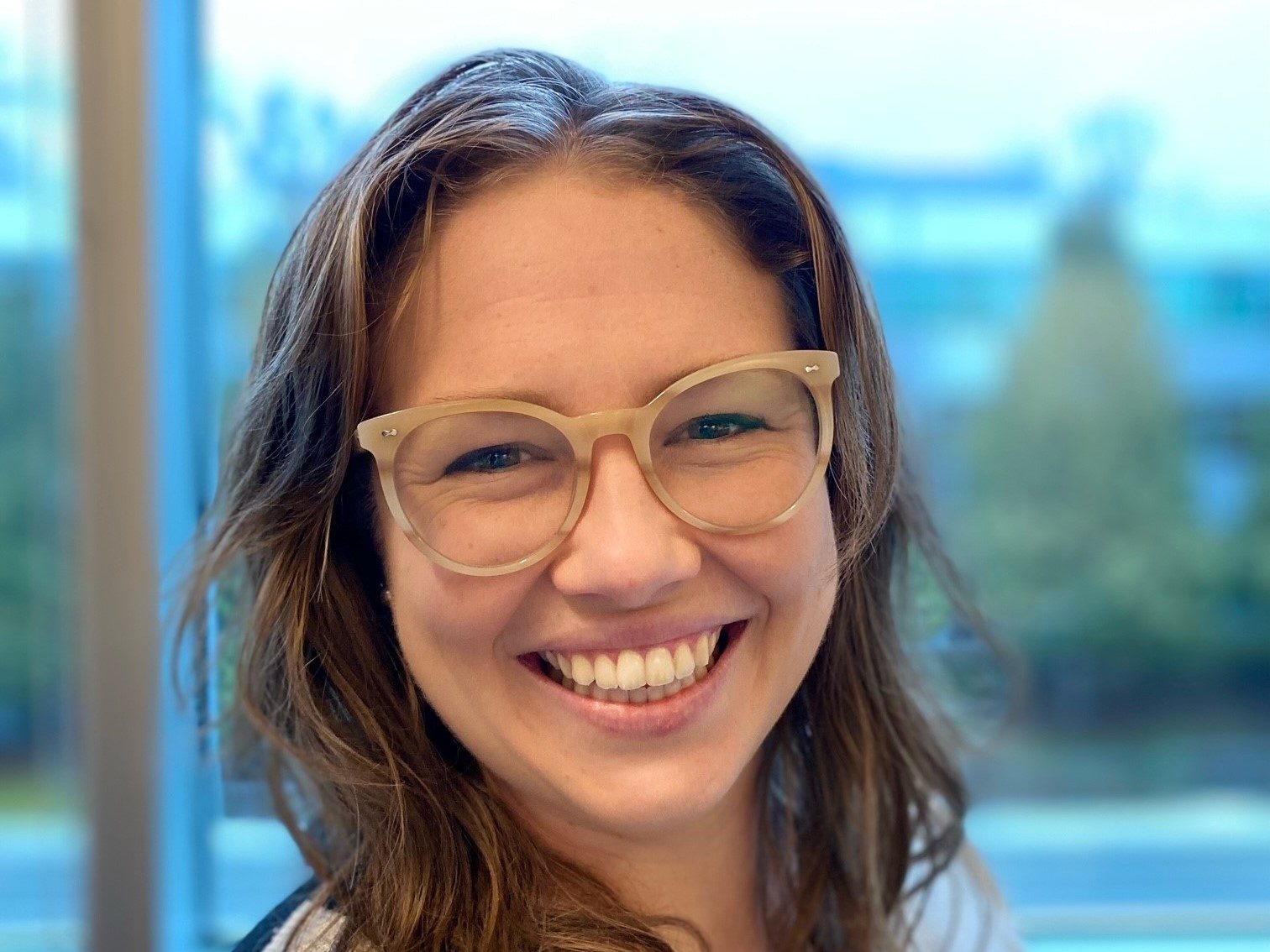
Sarah Mills has been a Clinical Instructor for Occupational Therapy in Mental Health and Substance Use (MHSU) since 2016. Outside of work, she enjoys being a dog mom to three rescued pups, playing field hockey, training for triathlons, and spending significant time solving jigsaw puzzles.
For those who don’t know, could you explain what it means to be a clinical member of faculty?
It is part of the portfolio of my position to facilitate student OT placements in MHSU in Fraser Health and to oversee a student-led OT clinic at Burnaby Mental Health and Substance Use. However, those responsibilities do not cover fully what it means to me to be a clinical member of the faculty. For me, it means:
- Continued learning: Students come to placement with up-to-date academic knowledge and their own personal work and life experiences. I get to learn so much from them!
- Creative problem-solving and novel challenges: Each student brings their own ideas, questions, and learning needs. I am constantly pushed to think creatively.
- Creating opportunities: I love being in a position where I can create opportunities for future OTs to achieve their learning goals.
- Contribution: I appreciate being in a position where I can contribute broadly to the learning of many people entering health care.
How did you first get involved with the Department of OSOT?
I became a Clinical Instructor in March 2022. This is when I started working with UBC to facilitate student OT placements in MHSU in Fraser Health and overseeing the student-led clinic. Before that, I offered individual placements for student OTs starting in 2018.
What types of placements do you offer to students?
I oversee the Student-Led Clinic at Burnaby Mental Health and Substance Use. The clinic provides occupational therapy services to people with complex mental illnesses and substance use disorders. The students meet with clients at the clinic, virtually, in their homes, and at other locations in the community (e.g., clubhouses, grocery stores, recreation centers, coffee shops, etc.). The students manage their own caseloads and schedules and then hand over their work to the next group of students coming to the clinic.
What have some of your most memorable moments as a preceptor been?
I love and remember every time a student does any of the following:
– a happy dance for any reason
– acknowledges that they did something well
– excitedly tells me about an interaction with a client because they are so excited about it
– decides to do something different than I would and has excellent clinical reasoning as to why
What are your overarching goals as a fieldwork educator?
Foremost in my mind is the hope that students leave their placements here feeling confident and comfortable working with people with mental illnesses and substance use disorders. These marginalized folks need health care services from many practice areas within health care. It is crucial to me that when they need OT services, no matter the practice area, the OT will provide trauma-informed, quality care that does not perpetuate stigma and fear. To support students to build their confidence, I emphasize the importance of the therapeutic relationship, discuss factors that contribute to stigma and encourage critical thinking.
It is also important to me that students have opportunities to find out and develop who they are as clinicians. I believe that students need practical experience interacting with clients, managing a schedule and caseload, and writing their own notes in order for them to start building their own style.
What would be your one piece of advice to people who are considering becoming clinical members of the faculty?
Absolutely become a clinical member of faculty! Working with students is such a fun way to continue learning and growing.